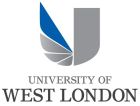Intellectual
An intellectual is a person who engages in critical thinking, research, and reflection about society and proposes solutions for its normative problems. Some gain authority as public intellectuals. Coming from the world of culture, either as a creator or as a mediator, the intellectual participates in politics either to defend a concrete proposition or to denounce an injustice, usually by rejecting, producing or extending an ideology, and by defending a system of values.
Intellectual Property
Intellectual property (IP) is a category of property that includes intangible creations of the human intellect, and primarily encompasses copyrights, patents, and trademarks. It also includes other types of rights, such as trade secrets, publicity rights, moral rights, and rights against unfair competition. Artistic works like music and literature, as well as some discoveries, inventions, words, phrases, symbols, and designs, can all be protected as intellectual property. It was not until the 19th century that the term "intellectual property" began to be used, and not until the late 20th century that it became commonplace in the majority of the world.
International
International mostly means something (a company, language, or organization) involving more than a single country. The term international as a word means involvement of, interaction between or encompassing more than one nation, or generally beyond national boundaries. For example, international law, which is applied by more than one country and usually everywhere on Earth, and international language which is a language spoken by residents of more than one country.
International Studies
International Studies (IS) generally refers to the specific university degrees and courses which are concerned with the study of ‘the major political, economic, social, and cultural issues that dominate the international agenda’. Predominant topics are politics, economics and law on a global level. The term itself can be more specifically defined as ‘the contemporary and historical understanding of global societies, cultures, languages and systems of government and of the complex relationships between them that shape the world we live in’. The terms and concepts of International Studies and international relations are strongly related; however, International relations focus more directly on the relationship between countries, whereas International Studies can encompass all phenomena which are globally oriented.
Law
Law is a system of rules that are created and enforced through social or governmental institutions to regulate behavior. Law is a system that regulates and ensures that individuals or a community adhere to the will of the state. State-enforced laws can be made by a collective legislature or by a single legislator, resulting in statutes, by the executive through decrees and regulations, or established by judges through precedent, normally in common law jurisdictions. Private individuals can create legally binding contracts, including arbitration agreements that may elect to accept alternative arbitration to the normal court process. The formation of laws themselves may be influenced by a constitution, written or tacit, and the rights encoded therein. The law shapes politics, economics, history and society in various ways and serves as a mediator of relations between people.
Property
Property, in the abstract, is what belongs to or with something, whether as an attribute or as a component of said thing. In the context of this article, it is one or more components (rather than attributes), whether physical or incorporeal, of a person's estate; or so belonging to, as in being owned by, a person or jointly a group of people or a legal entity like a corporation or even a society. Depending on the nature of the property, an owner of property has the right to consume, alter, share, redefine, rent, mortgage, pawn, sell, exchange, transfer, give away or destroy it, or to exclude others from doing these things, as well as to perhaps abandon it; whereas regardless of the nature of the property, the owner thereof has the right to properly use it (as a durable, mean or factor, or whatever), or at the very least exclusively keep it.
Law
We all know that the roots of injustice run deep. But violence cannot redress a solitary wrong, or remedy a single unfairness. Of course, all America is outraged at the assassination of an outstanding Negro leader who was at that meeting that afternoon in the White House in 1966. And America is also outraged at the looting and the burning that defiles our democracy. We just must put our shoulders together and put a stop to both. The time is here. Action must be now. So, I would appeal to my fellow Americans by saying, the only real road to progress for free people is through the process of law and that is the road that America will travel.
Lyndon B. Johnson, "Remarks Upon Signing the Civil Rights Act.," April 11, 1968. Online by Gerhard Peters and John T. Woolley, The American Presidency Project.
Intellectual
Few of the great tragedies of history were created by the village idiot, and many by the village genius.
Thomas Sowell, "Roberts betrayed his oath", The St. Augustine Record ((July 5, 2012).
Property
Things of the senses are real if considered as perceptible things, but unreal if considered as goods.
Simone Weil, Gravity and Grace (1972), p. 45.

